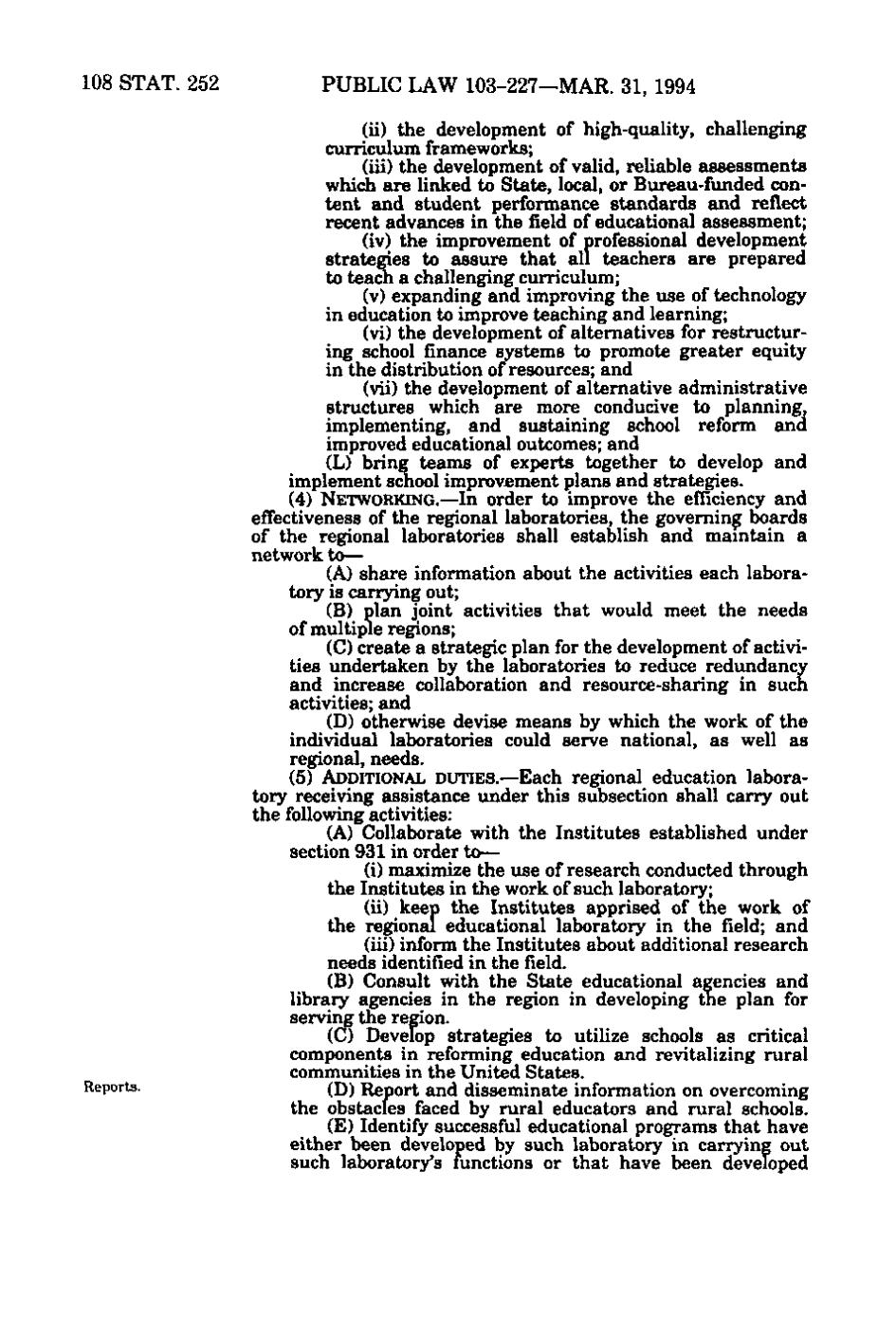108 STAT. 252 PUBLIC LAW 103-227—MAR. 31, 1994 Reports. (ii) the development of high-quality, challenging curriculum frameworks; (iii) the development of valid, reliable assessments which are linked to State, local, or Bureau-funded content and student performance standards and reflect recent advances in the field of educational assessment; (iv) the improvement of professional development strategies to assure that all teachers are prepared to teach a challenging curriculum; (v) expanding and improving the use of technology in education to improve teaching and learning; (vi) the development of alternatives for restructuring school finance systems to promote greater equity in the distribution of resources; and (vii) the development of alternative administrative structures which are more conducive to planning, implementing, and sustaining school reform and improved educational outcomes; and (L) bring teams of experts together to develop and implement school improvement plans and strategies. (4) NETWORKING.—In order to improve the efficiency and effectiveness of the regional laboratories, the governing boards of the regional laboratories shall establish and maintain a network to— (A) share information about the activities each laboratory is carrying out; (B) plan joint activities that would meet the needs of multiple regions; (C) create a strategic plan for the development of activities undertaken by the laboratories to reduce redundancy and increase collaboration and resource-sharing in such activities; and (D) otherwise devise means by which the work of the individual laboratories could serve national, as well as regional, needs. (5) ADDITIONAL DUTIES.—Each regional education laboratory receiving assistance under this subsection shall carry out the following activities: (A) Collaborate with the Institutes established under section 931 in order to— (i) maximize the use of research conducted through the Institutes in the work of such laboratory; (ii) keep the Institutes apprised of the work of the regional educational laboratory in the field; and (iii) inform the Institutes about additional research needs identified in the field. (B) Consult with the State educational agencies and library agencies in the region in developing the plan for serving the region. (C) Develop strategies to utilize schools as critical components in reforming education and revitalizing rural communities in the United States. (D) Report and disseminate information on overcoming the obstacles faced by rural educators and rural schools. (E) Identify successful educational programs that have either been developed by such laboratory in carrying out such laboratory's functions or that have been developed
�
